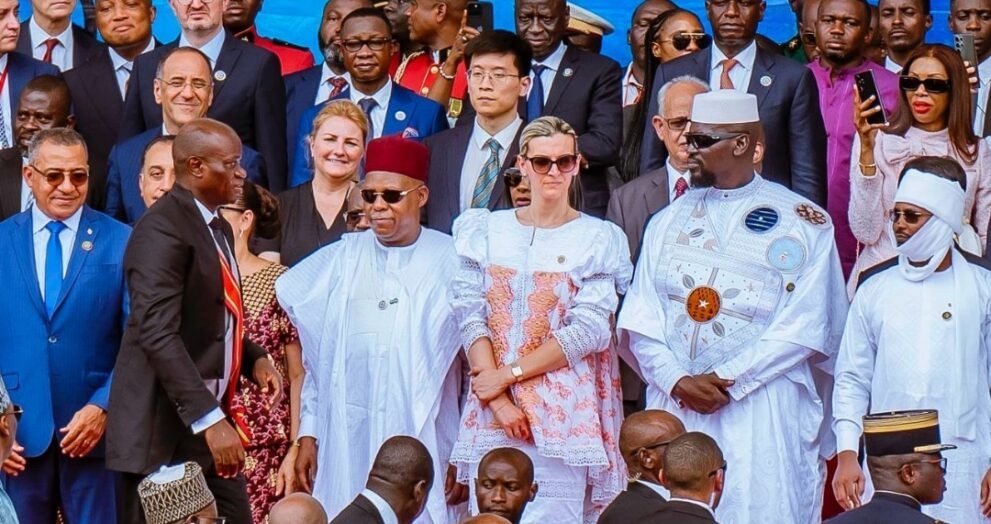AFRICAN FUTURE DEPENDS ON INTEGRATING INFORMAL SECTOR INTO FORMAL INTRA-AFRICAN TRADE – VP SHETTIMA
The Vice President, Senator Kashim Shettima, has emphasized that Africa’s future economic success depends on its ability to integrate the informal sector into the formal intra-African trade framework, particularly through the African Continental Free Trade Area (AfCFTA). In a statement signed by Stanley Nkwocha, Senior Special Assistant to The President on Media & Communications, Shettima made this declaration on Monday when he declared open the 4th African Union Micro, Small and Medium Enterprises (MSMEs) Forum in Abuja. Stanley Nkwocha said Shettima warned that if Africa fails to harness the potential in the informal sector for small businesses to grow, the continent would “keep going round the same cycle of despair.” Shettima demanded the integration of the informal economy into the fabric of formal intra-African trade, noting that this is the reason why small businesses have remained at the heart of policy formulation in Nigeria. “Your Excellencies, distinguished delegates, there can be no African prosperity without a strong MSME ecosystem. This forum is a continental call to action. We owe it to ourselves, to our children, and to generations unborn, to integrate our informal economy into the framework of formal intra-African trade,” Shettima said. He expressed confidence that through collaborative efforts, the forum would mark a turning point and translate shared aspirations into concrete actions that empower MSMEs and propel Africa towards a brighter, more sustainable future. Shettima highlighted the crucial role MSMEs play in the development and growth of Africa, observing that beyond employing millions of Africans, “they are engines of inclusive growth and effective tools for poverty alleviation.” In Nigeria alone, MSMEs contribute a staggering 48% to the national GDP and employ over 84% of the workforce. The Vice President identified limited access to affordable finance as a major challenge confronting MSMEs in Africa, describing it as a recurring nightmare. However, he expressed hope that the AfCFTA would bring change, saying, “It costs our continent not just money—it costs us momentum. But we must find hope in the promise of the African Continental Free Trade Area (AfCFTA).” Shettima also acknowledged the remarkable surge in digital adoption across Africa, saying technology is achieving what politics has failed to actualize over the years. He emphasized the need for policymakers to invest in robust digital infrastructure, bridge the digital literacy gap, and establish regulatory frameworks that do not stifle innovation. The forum featured remarks from several dignitaries, including the Deputy Chief of Staff to the President/Chairman of the Host Country Committee, Senator Ibrahim Hassan Hadejia; Special Adviser to the President on Job Creation and MSME, Mr. Temitola Adekunle-Johnson; Director General of the Small and Medium Enterprises Development Agency (SMEDAN), Mr. Charles Odii; and Managing Director of the Bank of Industry, Dr. Olasupo Olusi, among others.




































































































































































































































































































































































































































































































































































































































































































































































































































































































































































































































































































































































































































































































































































































































































































































































































































































































































































































































































































































